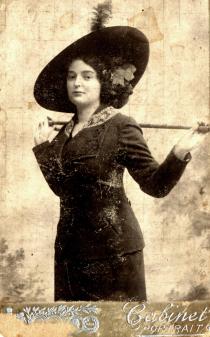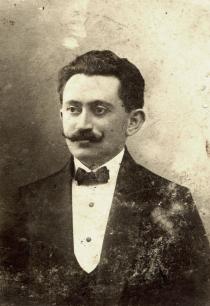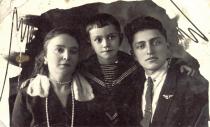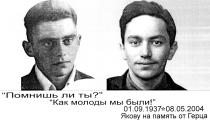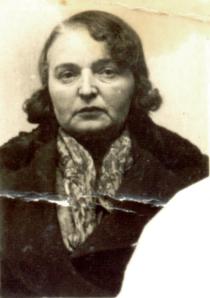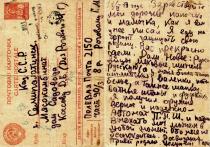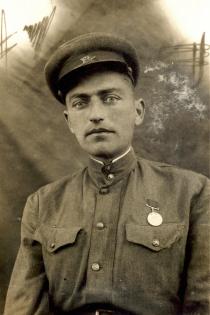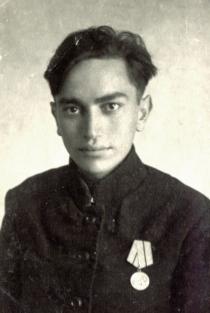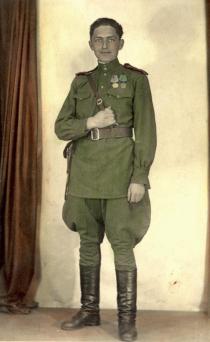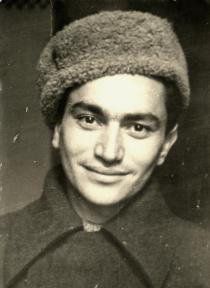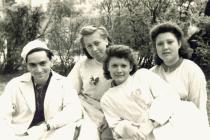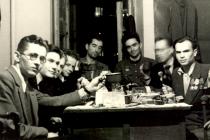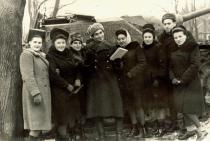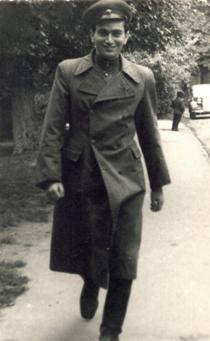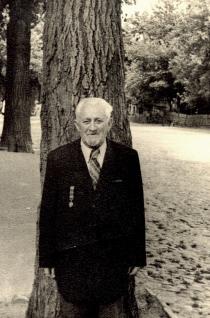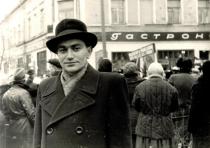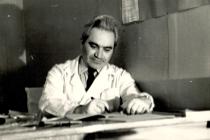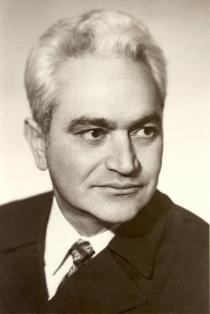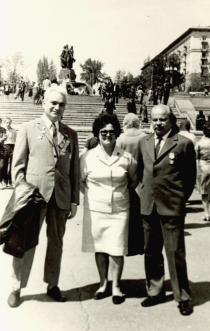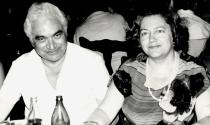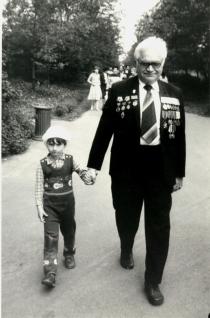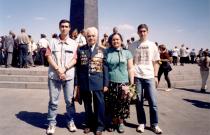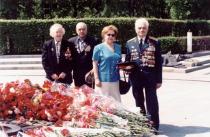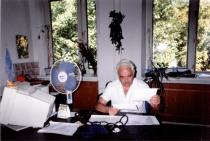This picture was made in the hostel of medical institute in Kiev. I am, Hertz Rogovoy, in the center of the table, 6th from the right. After the war was over in 1946 I was sought by the military enlistment officers and was apprised of being awarded with the Great Patriotic War Order of the second degree for the last battles by Kusk. I was not conferred the order as I was wounded and hospitalized. At the end, I was awarded in the Ministry of Defense. The front-line soldiers, my institute friends, got together to mark this event. There are students-war veterans at the table, first from right is Victor Voevodin having the Glory Order on his chest, he is one course older than me. Victor Paklay, a legless war veteran, is next to me. Yuri Dusho is first from left. I do not remember other students' names, so many years have passed. The picture was taken in Kiev in the hostel of medical school, in 1946.
In 1943 after Stalingrad Battle I was given two awards for the battle, i.e. medal “for Bravery” and the Order of Red Banner, the second high award after Lenin Order. Chuikov, commander in chief [Chuikov, Vasiliy Ivanovich (1900-1982) prominent military commander, conferred of many Soviet and foreign orders and medals], shook my hand.
In the winter 1943 near Kursk was my last fight, I was wounded, and sent to the hospital. After I was discharged from hospital I came to Semipalatinsk [Kazakhstan, about 3000 km from Kiev], where my parents moved from Voronezh oblast in 1942. I began to work at school as a military training teacher. I finished 9 grades before war, but I could not be studying and sponging on my parents. I asked my colleagues for assistance. They helped me out to get the certificate for 10 grades. The time I spent in hospital influenced by choice of the future profession. I was firm - if I were to survive, I would become a doctor. In August, 1944 I went to Kiev to enter the Kiev Medical Institute.
All those years I got excellent marks. Of course it was difficult. I had been walking on crutches for all those years. Often my wound was open, and the splinters were coming out, causing acute pain. Of course I was young, and I wanted to appear a hussar in front of girls, and leave the crutches. I made a stick with a handle myself so I could prop on it with both hands. I had used by the fifth year. At that time I was able to walk, not only without a crutch, but even without a stick. There were 850 ladies and 40 men in my graduation year. Those guys were mostly handicapped like me. Those who were healthy then in 1944, were at war. There were armless and legless people among us. I entered psychoneurotic department. I had studied there for years. Then it was closed down, and I became a therapist. There was no other way out
Our pre-war apartment was occupied by other people. Probably I could fight for my rights and file in court, but I was too weak for that. I stayed with my father’s sister Feiga for some time, who came back to Kiev from evacuation. Then I was given a room in the hostel of the medical institute. The handicapped in war were given the whole floor. During the last courses we were given the cards for dinner. But it was later. At the beginning, we just used to starve. I being unsettled, feeling hunger and cold by all means decided to graduate from school. So, I kept on learning hanging on by skin of teeth. I was good student, remaining the monitor of the group through all students' years. The clothes that I had was ill-kemp- my military uniform from war. I wore military jacket, received at war in 1941. I never took off my jacket, even during the classes, because my army pants were torn on the back side, and on the knee area. I was not ambidextrous at that time, so with my left hand I sawed patches made from my green tunic on my black pants. I did not have any other clothes.

